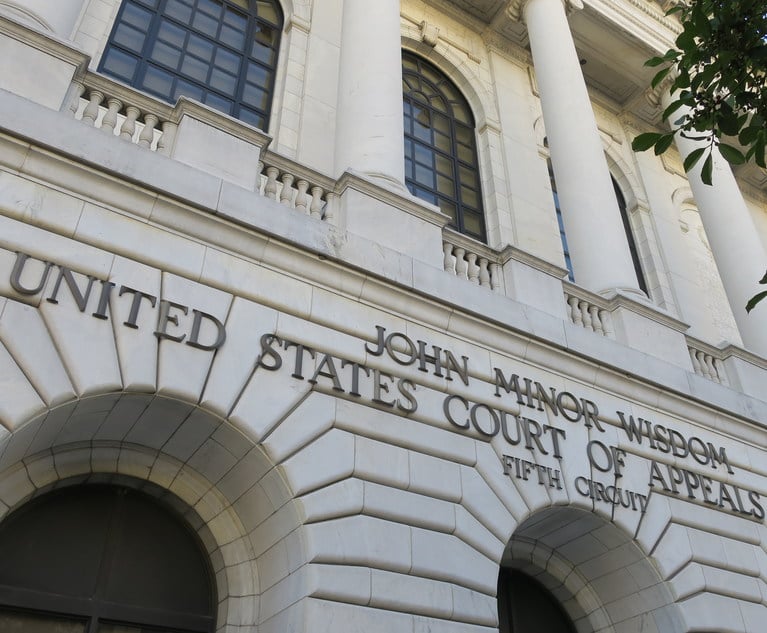 Credit: Song_about_summer/Adobe Stock
Credit: Song_about_summer/Adobe Stock 3rd Circuit Reinstates Harassment Claims: Dispute Over EEOC's Right-to-Sue Notice Date to Be Determined by a Jury
"We have not yet addressed whether such an action suffices to start the 90-day clock," Judge Arianna Freeman wrote for the court. "Under the circumstances here—where the upload was not accompanied by a direct communication to the plaintiff or her lawyer—we hold that it does not."
July 22, 2024 at 06:32 PM
5 minute read
The U.S. Court of Appeals for the Third Circuit recently reinstated an employee's sexual harassment and retaliation suit against a state agency deemed time-barred by a lower court, finding that a jury must determine when the plaintiff or her lawyer first received a right-to-sue letter from the Equal Employment Opportunity Commission.
Cephia Hayes sued her employer, the New Jersey Department of Human Services, for claims of sexual harassment and retaliation under Title VII in the U.S. District Court for the District of New Jersey. U.S. District Judge Karen M. Williams found that Hayes' suit, Hayes v. New Jersey Department of Human Services, was time-barred because it was filed more than 90 days after the Equal Opportunity Employment Commission notified her or her counsel that it would not pursue her claim, according to the opinion.
This content has been archived. It is available through our partners, LexisNexis® and Bloomberg Law.
To view this content, please continue to their sites.
Not a Lexis Subscriber?
Subscribe Now
Not a Bloomberg Law Subscriber?
Subscribe Now
NOT FOR REPRINT
© 2025 ALM Global, LLC, All Rights Reserved. Request academic re-use from www.copyright.com. All other uses, submit a request to [email protected]. For more information visit Asset & Logo Licensing.
You Might Like
View All
Legal Issues to Watch in the US Appeals Courts in 2025


'Point Us to the Plain Language': NJ Supreme Court Grills Defense Statutory Requirements for Affidavit of Merit
5 minute read
3rd Circuit Judges Zero In on Constitutional Challenges to Medicare Drug Pricing Program
Trending Stories
- 1Microsoft Becomes Latest Tech Company to Face Claims of Stealing Marketing Commissions From Influencers
- 2Coral Gables Attorney Busted for Stalking Lawyer
- 3Trump's DOJ Delays Releasing Jan. 6 FBI Agents List Under Consent Order
- 4Securities Report Says That 2024 Settlements Passed a Total of $5.2B
- 5'Intrusive' Parental Supervision Orders Are Illegal, NY Appeals Court Says
Who Got The Work
J. Brugh Lower of Gibbons has entered an appearance for industrial equipment supplier Devco Corporation in a pending trademark infringement lawsuit. The suit, accusing the defendant of selling knock-off Graco products, was filed Dec. 18 in New Jersey District Court by Rivkin Radler on behalf of Graco Inc. and Graco Minnesota. The case, assigned to U.S. District Judge Zahid N. Quraishi, is 3:24-cv-11294, Graco Inc. et al v. Devco Corporation.
Who Got The Work
Rebecca Maller-Stein and Kent A. Yalowitz of Arnold & Porter Kaye Scholer have entered their appearances for Hanaco Venture Capital and its executives, Lior Prosor and David Frankel, in a pending securities lawsuit. The action, filed on Dec. 24 in New York Southern District Court by Zell, Aron & Co. on behalf of Goldeneye Advisors, accuses the defendants of negligently and fraudulently managing the plaintiff's $1 million investment. The case, assigned to U.S. District Judge Vernon S. Broderick, is 1:24-cv-09918, Goldeneye Advisors, LLC v. Hanaco Venture Capital, Ltd. et al.
Who Got The Work
Attorneys from A&O Shearman has stepped in as defense counsel for Toronto-Dominion Bank and other defendants in a pending securities class action. The suit, filed Dec. 11 in New York Southern District Court by Bleichmar Fonti & Auld, accuses the defendants of concealing the bank's 'pervasive' deficiencies in regards to its compliance with the Bank Secrecy Act and the quality of its anti-money laundering controls. The case, assigned to U.S. District Judge Arun Subramanian, is 1:24-cv-09445, Gonzalez v. The Toronto-Dominion Bank et al.
Who Got The Work
Crown Castle International, a Pennsylvania company providing shared communications infrastructure, has turned to Luke D. Wolf of Gordon Rees Scully Mansukhani to fend off a pending breach-of-contract lawsuit. The court action, filed Nov. 25 in Michigan Eastern District Court by Hooper Hathaway PC on behalf of The Town Residences LLC, accuses Crown Castle of failing to transfer approximately $30,000 in utility payments from T-Mobile in breach of a roof-top lease and assignment agreement. The case, assigned to U.S. District Judge Susan K. Declercq, is 2:24-cv-13131, The Town Residences LLC v. T-Mobile US, Inc. et al.
Who Got The Work
Wilfred P. Coronato and Daniel M. Schwartz of McCarter & English have stepped in as defense counsel to Electrolux Home Products Inc. in a pending product liability lawsuit. The court action, filed Nov. 26 in New York Eastern District Court by Poulos Lopiccolo PC and Nagel Rice LLP on behalf of David Stern, alleges that the defendant's refrigerators’ drawers and shelving repeatedly break and fall apart within months after purchase. The case, assigned to U.S. District Judge Joan M. Azrack, is 2:24-cv-08204, Stern v. Electrolux Home Products, Inc.
Featured Firms
Law Offices of Gary Martin Hays & Associates, P.C.
(470) 294-1674
Law Offices of Mark E. Salomone
(857) 444-6468
Smith & Hassler
(713) 739-1250






